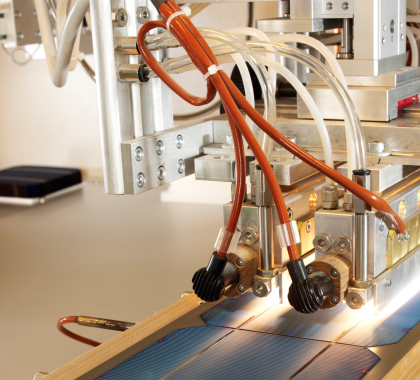A multi-year effort by federal, state, and local agencies to prop up an Oregon solar-panel manufacturer has ended in a shuttered factory, millions of taxpayer dollars down the drain, and a heavily polluted manufacturing site.
In 2010 SoloPower Systems (SoloPower) claimed it could manufacture “flexible” solar PV cells and modules that were light and thin enough to be installed on buildings that couldn’t support regular solar panels. Promising to employ hundreds of people at its 225,000-square-foot manufacturing plant, SoloPower attracted millions of dollars in loans and tax credits from government agencies.
Governments Provide Funding
In 2010 the U.S. Department of Energy loaned SoloPower $10 million. Business Oregon, a state agency, granted SoloPower $20 million in tax credits. The City of Portland agreed to cover half of SoloPower’s debt to the state, provided the solar-panel factory was located within the city’s limits, while Multnomah County, where Portland is located, declared the company’s factory site was in an enterprise zone, freeing the company from paying property taxes as long as it met certain job creation requirements.
By August 2011, the Obama administration increased is commitment to the project, furnishing $197 million in DOE loan guarantees to the company, and the California Energy Commission loaned the company nearly $5 million.
Company Falters
SoloPower’s prospects yielded relatively quickly to marketplace realities with the company’s largely untested technologies proving unreliable and more expensive than those offered by its competitors.
In April 2013, the company shut down its factory and laid off most of its workforce. By July 2013 it stopped making payments on its state loans and shortly thereafter, California sued the company for failing to make payments on its loan.
Subsequently, the U.S. Energy Department withdrew its $197 million in loan guarantees, and in the fall of 2017, the Trump Energy Department declared SoloPower in default of its original $10 million loan.
Also in 2017, Multnomah County sued the company for $1.8 million in back property taxes the county says the company owes for failing to meet the job commitments necessary to qualify for the property tax breaks it received, and SoloPower ceased making to the state of Oregon, saddling Portland with repaying the company’s entire $5 million loan guarantee from the state.
Toxic Waste Site
In an audit of the company Oregon’s Secretary of State pointed out although “Multnomah County had the legal right to seize the borrower’s equipment for delinquent taxes,” it was unlikely to do so because the plant was heavily polluted with cadmium and hydrochloric acid.
Seizing the equipment may not be an option given the level of pollution at the plant.
This stuff is very caustic,” Michael Vaughn, Multnomah County accessor told Oregon Live. “And there’s lots of it. It’s one big mess.”
Cleaning up the plant is estimated to cost more than $500,000.
‘Reimburse Taxpayers And Resign’
The Solopower case offers more proof solar power is not yet ready for prime time and may never be, says Jay Lehr, director of science at The Heartland Institute, which publishes Environment & Climate News.
“Oregon’s experience with yet another failed solar venture should remind the public solar power can never pay for itself, no matter how generous the subsidies,” Lehr said.
James Taylor, a senior fellow at The Heartland Institute, says government officials have only themselves to blame for wasting taxpayers dollars.
“It is ironic state and local officials are now suing SoloPower, the company they once swooned over and heavily subsidized,” said Taylor. “Instead of suing SoloPower, they should personally reimburse taxpayers and resign.”
Bonner R. Cohen, Ph. D. ([email protected]) is a senior fellow at the National Center for Public Policy Research and a senior policy analyst with the Committee for a Constructive Tomorrow.





